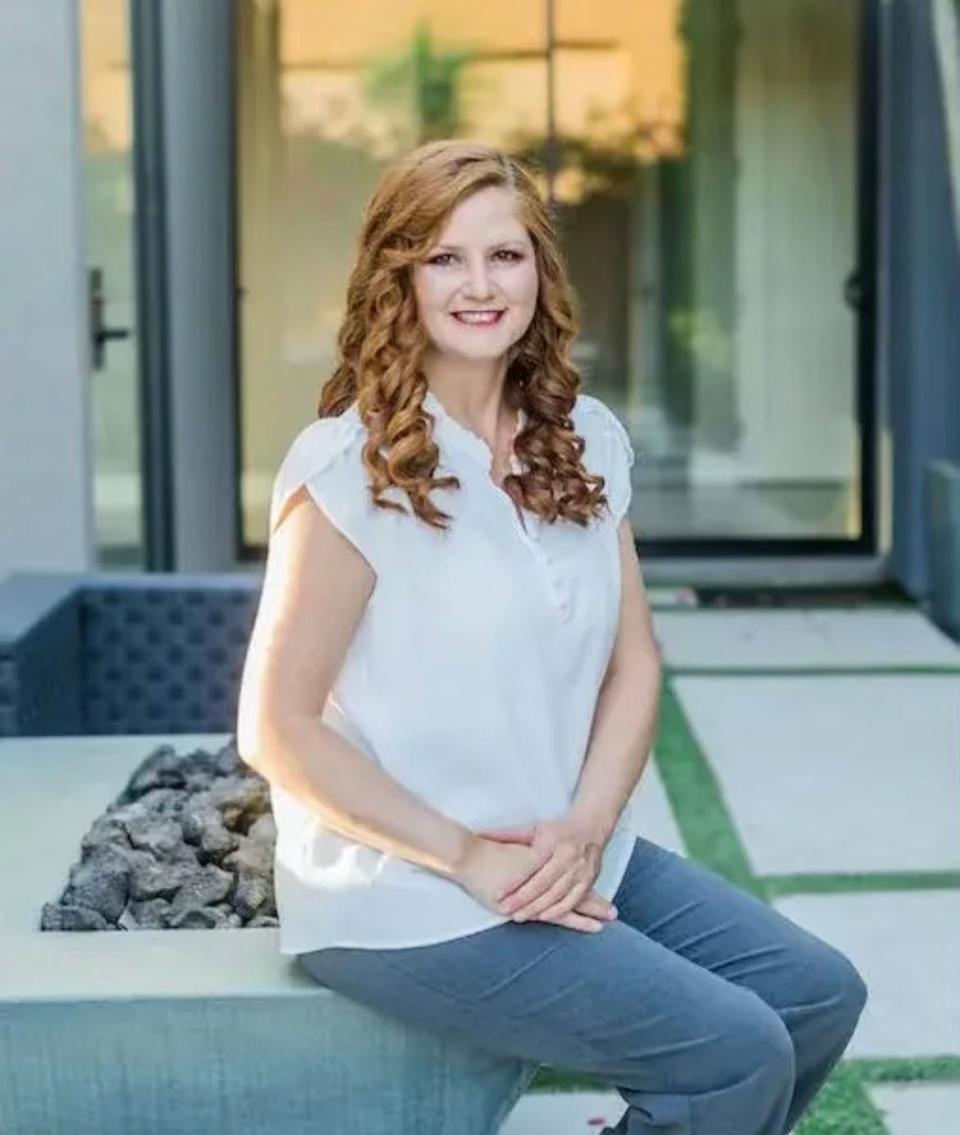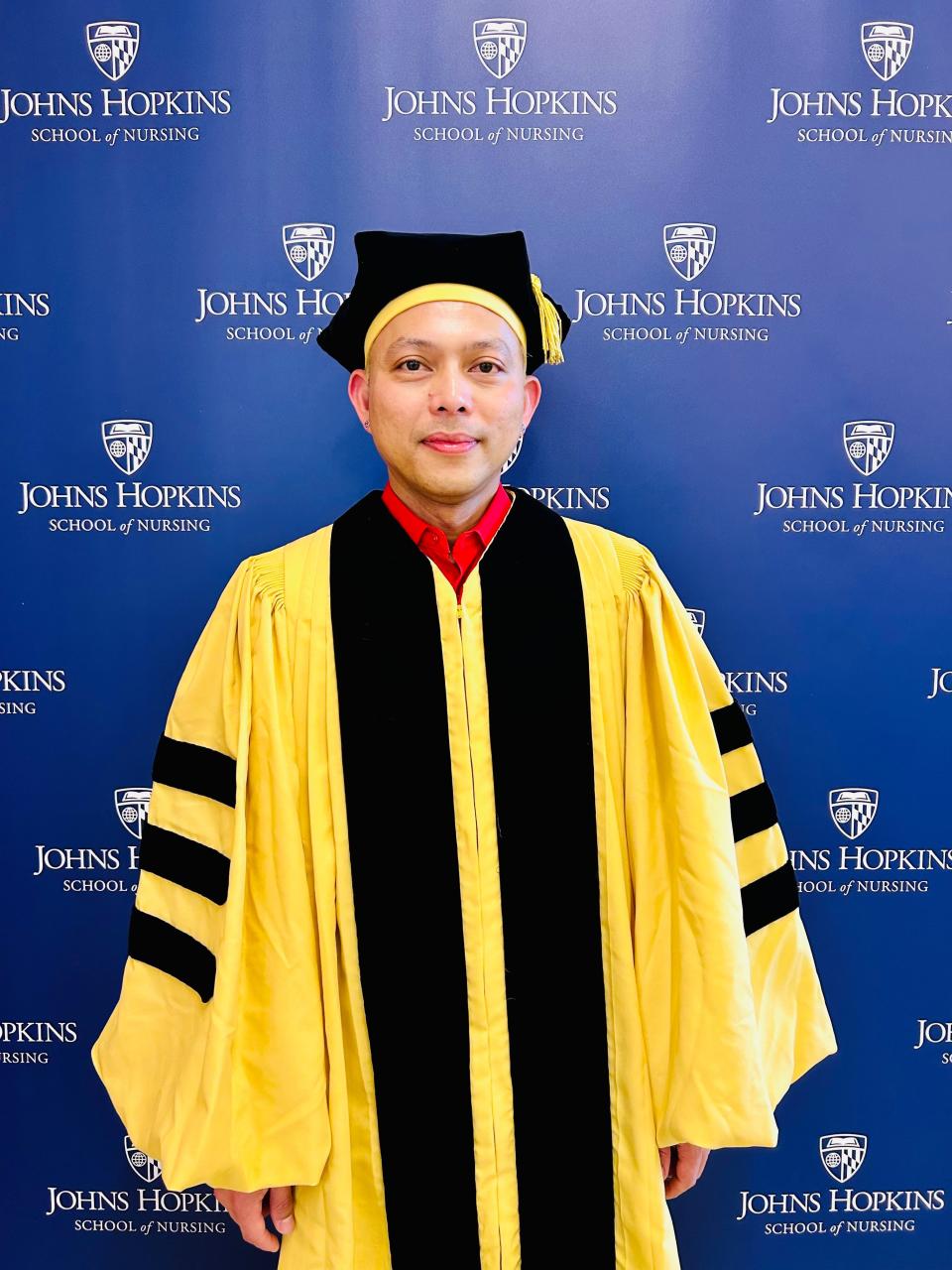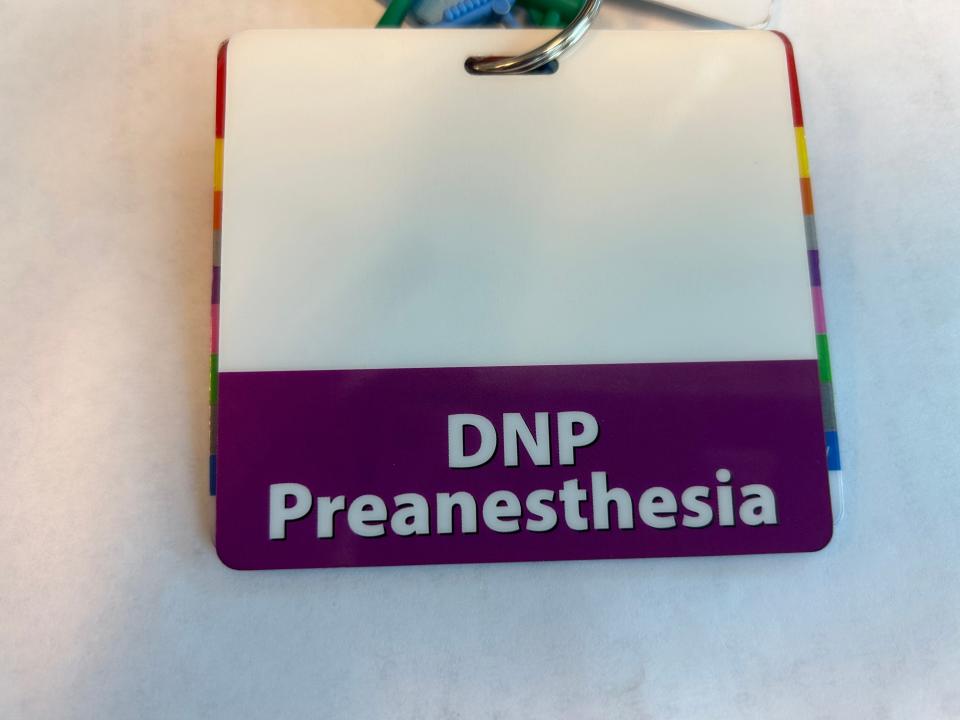Who can call themselves ‘Doctor’? Federal lawsuit challenges California's restrictions
Who gets to call themselves "Doctor"?
It's a question that goes to the heart of trust in the medical profession, given the weight the title carries.
And now it's the subject of a federal lawsuit, as several nurse practitioners — one from the Coachella Valley — challenge a state law that bars them from using "Dr." because they're not physicians.
One of the plaintiffs is Indian Wells resident Heather Lewis, who earned her master of science in nursing education and a master of science in family nursing practice degrees in 2014 and 2016, respectively, then set her sights on becoming a doctor of nursing practice.
As the first person in her family to pursue higher education, Lewis wanted to not only achieve this accomplishment for herself, but show her children what's possible when you set your mind to it. In March, she earned her doctoral degree, and to celebrate, planned to add "Dr. Heather Lewis, FNP-C, DNP" to her business cards and scrubs.

But the happy times were overshadowed by news of a concerning legal battle with another DNP.
Sarah Erny, a nurse practitioner from San Luis Obispo County, earned her DNP degree and began using the title "Dr." at her clinic and website. In civil complaint documents, Erny said her patients "were so proud ... they started calling me 'Dr. Sarah,'" and that her supervising physician told her she needed to "own my degree" and had his staff call her "Dr. Sarah" in the office and with patients. In August 2019, an anonymous person filed a complaint with the Medical Board that Erny was using the title.
California's Business & Professions Code 2054 states that only physicians or surgeons can use the title "doctor" or letters "Dr." and anyone found doing so without the proper certificates are guilty of a misdemeanor. Registered nurses who have been certified as nurse practitioners by the California Board of Registered Nursing may use the titles “Advanced Practice Registered Nurse” and “Certified Nurse Practitioner” and the letters “APRN-CNP,” “R.N., N.P" or any other combination as it relates to their credentials.
In most instances, Erny indicated she was a nurse practitioner, but San Luis Obispo County District Attorney Dan Dow alleged she failed to advise the public that she was not a medical doctor or to identify her supervising physician. In November, a settlement was reached, and Erny was ordered to pay $19,750 in civil penalties and stop using "Dr."
Lewis said she was "completely unaware" this law existed in California and disappointed in what it would mean for her future.
"My master's is in family nurse practitioner, I have a master's in nursing education. I'm entitled to utilize those terms. Well, I also earned my DNP. Why am I not entitled to use the term 'Dr.?'" Lewis said. "Every one of my patients knows I'm a nurse practitioner. All of my uniforms say 'nurse practitioner.' They want to know I'm board certified and I meet the national standards for meeting their health care needs. Why is this doctoral title any different?"
Lewis and two other plaintiffs, Jacqueline Palmer, of Lancaster, and Rodolfo Jaravata-Hanson, of Murrieta, filed a complaint in United States District Court in June arguing the state law violates their First Amendment rights, and they should be able to "speak truthfully about their titles without the threat of fines, loss of license, and other regulatory action to strip them of their livelihoods."
The heads of the state Medical Board and Board of Registered Nursing, who are named as defendants in the case, both declined to comment. So did the state attorney general, who is a defendant and will represent the state officials in court.
‘The next Sarah Erny’
News of the Erny case "spread like wildfire" once other nurse practitioners heard about it, said Donna Matias, one of the lawyers for Lewis and her co-plaintiffs.
Matias said she has spoken to "many, many more" who are concerned about the implications of the state law. Dentists, chiropractors and pharmacists who use "Dr." — "technically speaking, they're in violation of this provision," she added.
Compared to other states, Matias said California's statute is the strictest. Others, such as Arizona and Delaware, prevent nurses, pharmacists and other professionals from using "doctor" or "Dr." unless they immediately clarify their role.
While Matias agrees it's important to strike down on people falsely claiming to be physicians or surgeons, she said none of the people she has spoken to in regards to this case has ever falsely portrayed themselves as anything other than a nurse practitioner.
"They are a hardworking bunch of people in order to get to where they are," Matias said. "And to suddenly just be worried that you're going to be the next Sarah Erny, it's unnecessary."
She added: "If you want to talk about who can use the term doctor, then follow what the other states do and say, 'All right, you can use the term doctor, you just have to clarify that you're not a physician or you just have to clarify where your degree is from or what type of degree it is or what type of practitioner you are. It's very simple."
Matias and Lewis both believe nurse practitioners may be being targeted due to the passage of AB 890. The law, which went into effect in January, enables nurse practitioners in specified practice settings across California to begin practicing without physician supervision. The California Medical Association opposed the bill, saying it would "remove critical patient protections" if nurse practitioners were allowed to practice independently.
What ‘Dr.’ means to DNPs
When Lewis thinks about what the initials "Dr." mean, especially since completing her advanced degree, it means society gains "highly educated nurses in the workforce," and as a result, "patient outcomes improve."
Lewis' doctoral thesis focused on obesity medicine and improvements that could be made. She works at bariatric surgery, chiropractic and internal medicine practices in the Coachella Valley, where her passion is "really healing people" by finding lifestyle changes that can lead to healthy outcomes.
"All my patients know, 'Heather is not just going to pass out pills. She's going to give me three months to relook at this.' That's important to me," Lewis said. "I'm here for them, I want them to alter their lifestyle and be healthy and proactive in their care and making health care decisions that are important to them." Her doctoral degree and advanced education in the field, she said, "allows that sense of ownership to their health care in all of my practices."
As a result, Lewis wants to show off her latest credentials, without fear of hefty fines or possibly losing her license. She hasn't put up her updated name plates or received her updated business cards, but she said she's going to fight "tooth and nail" to make sure she and fellow DNPs can use "Dr."
"My name plate over my door clearly states 'Family nurse practitioner,' and all of my patients know what I've been doing and what I will continue doing for them," Lewis said, though she's still fearful of retribution. "I've talked to my family and said, 'I'm all in. You guys knew I wanted to be all in.' My kids, my boyfriend (said), 'OK.'"
Lewis believes that as long as nurse practitioners identify themselves and "stay within our scope of practice," nothing should them from using the letters "Dr." if they have a doctorate degree.

Similarly, Jaravata-Hanson completed his DNP degree in May. While he was still in school, he heard of the Erny case and called the decision "personal and an attack on people in my profession."
"It felt like what they did to her would mean that the whole two years of me trying to get this advanced degree was for nothing if it's not even going to be acknowledged that I graduated with a doctorate degree," Jaravata-Hanson said.
Gearing up to celebrate his graduation, he bought a badge to include his latest credentials, "DNP preanesthesia," but later he worried if he would get in trouble for wearing it. He also couldn't help but wonder how the law would affect his future aspirations to open his own practice. If patients were given the opportunity to pick between two clinics, one with "Dr. Hanson" and one with "Mr. Hanson" written on it, most would gravitate toward the former. "My ability to have a successful practice is going to be affected by me not even being able to call myself a doctor," he added.

Even before he earned his doctorate, Jaravata-Hanson decided to join the case as a plaintiff. Based on all that he learned in school, like that those who pursue doctorate degrees do so to be leaders in the field, Jaravata-Hanson said being part of the fight would be a way to make a mark in his profession.
"I can either stay quiet and not participate and be a passive observer, or I can be part of a change that has a positive impact on not just my fellow nurse practitioners, but other advanced practice nurses and also, in extension, my patients," he said. "The overall grand goal for me is that maybe this is the only thing in my career that I can say I did something big."
Ema Sasic covers entertainment and health in the Coachella Valley. Reach her at ema.sasic@desertsun.com or on Twitter @ema_sasic.
This article originally appeared on Palm Springs Desert Sun: Lawsuit takes on California rules on who can call themselves ‘Doctor’

